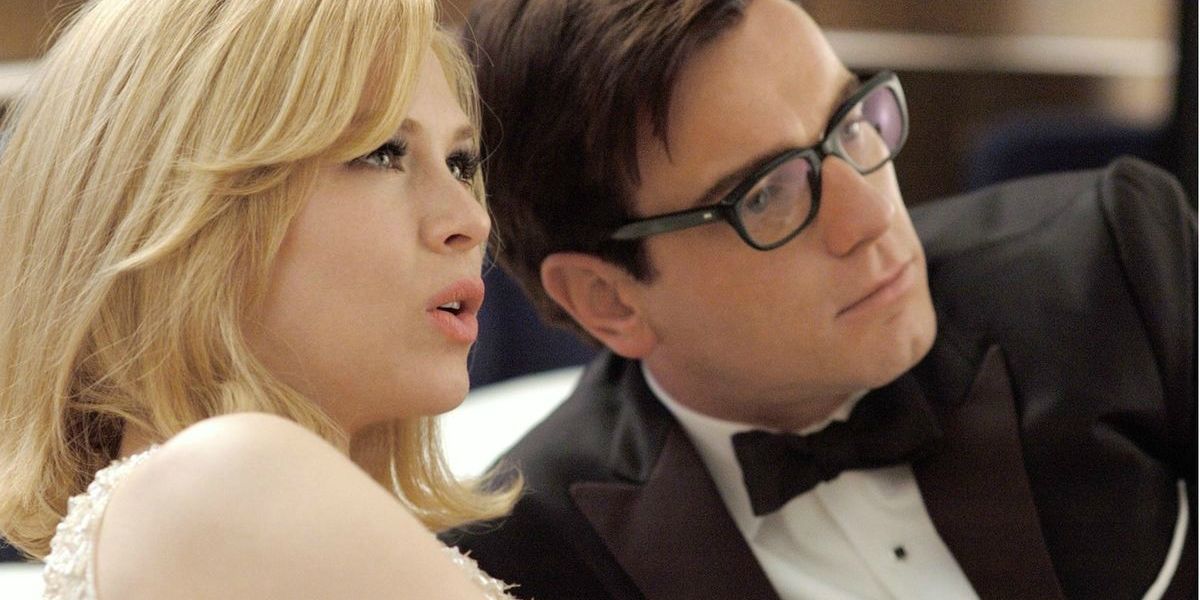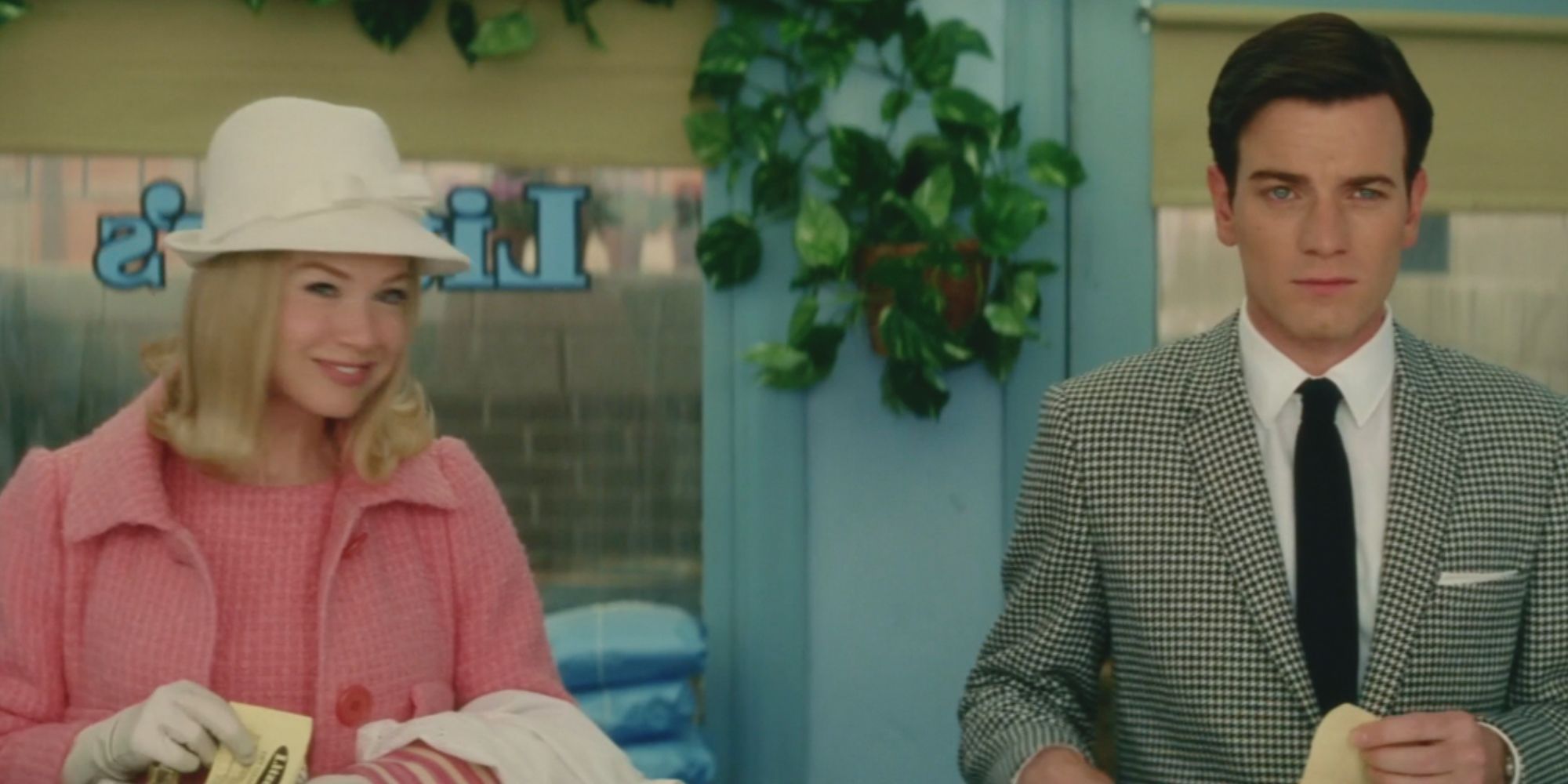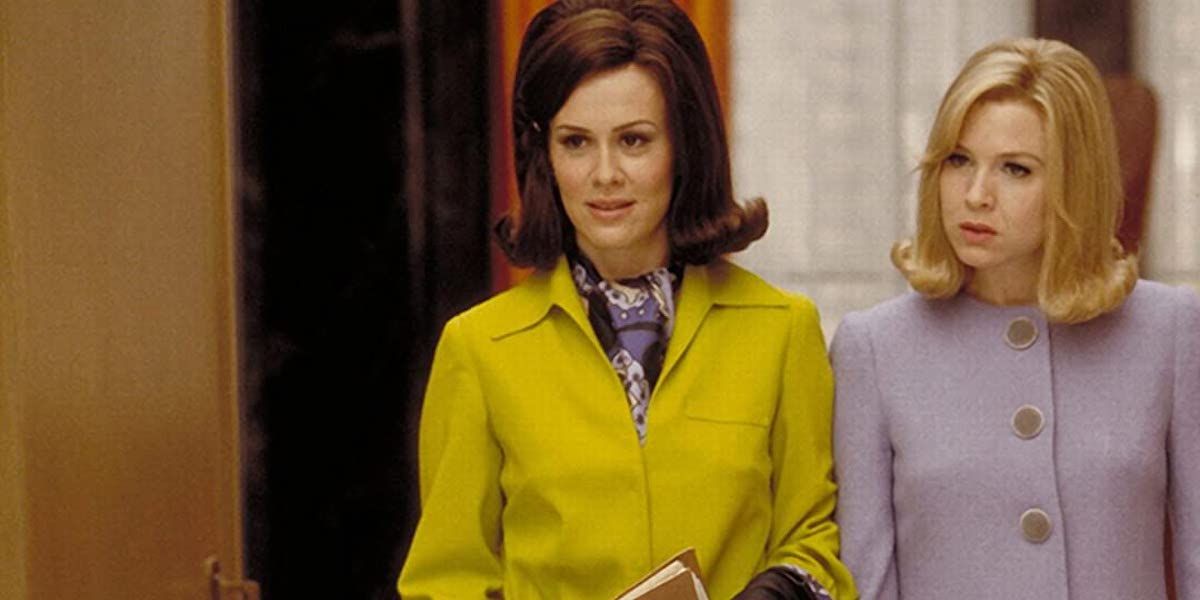Well before Peyton Reed began making Ant-Man movies, he subverted the modern rom-com with his lesser-discussed 2003 film Down with Love. While many are familiar with Reed's knack for subversion within the MCU's Ant-Man branch, followers of the director know that he's been toppling cinematic tropes long before he subverted the superhero genre through fashioning a low-key heist comedy to tell its smallest story for its smallest hero. From Yes Man to Bring It On, Peyton Reed loves to turn a genre on its head. There’s no better film to illustrate this than Down with Love, a film that’s not discussed nearly as much as it should be.
What Is 'Down with Love' About?
While on the surface Down with Love appears to be an average run-of-the-mill rom-com, complete with two potential lovers at odds and more innuendo than a Pixar movie, by the time it reaches its mind-bending conclusion it lands on a spectrum somewhere between parody and a character study about a faux feminist sociopath. Set before the sexual revolution of the 1960s (with gobsmacking production design that even the Quantum Realm will have trouble contending with), the plot follows feminist writer Barbara Novak (Renée Zellweger), whose best-selling book insists that women abstain from love, and journalist Catcher Block (Ewan McGregor), described in the film as the ultimate “ladies’ man, man’s man, man about town”. After she publicly ousts him as the worst type of man in a broadcasted interview, he sets out to destroy her reputation by assuming a false identity and deceiving her into falling in love with him, thereby proving her a fraud. If it sounds problematic knowing that these two will eventually end up together it’s because it absolutely is. Better yet, it knows it, using its fluency for the rom-com genre and self-awareness to both pay tribute to the misogynistic portrayal of gender in old-fashioned rom-coms and spit in its face.
Down with Love borrows several plot points and conventions from the ‘no-sex sex comedies’ of the early 1960s, specifically Pillow Talk and Lover Come Back, both starring Rock Hudson and Doris Day with supporting roles from Tony Randall. Two essential things to note about the content of these films, Down with Love included: firstly, nearly every conversation is a hilarious subtextual reference to sex. Secondly, all feature men deceiving their unlikely paramours into falling in love with them. Pillow Talk sees Rock Hudson disguising his voice to pretend he’s a Texan rancher when he’s in fact the womanizing composer who Doris Day specifically loathes, while Lover Come Back (set in the deceptive world of advertising) sees him pretending to be a mysterious product’s scientist when in reality he’s her rival advertising executive.
The biggest problem with these genre staples is that all of these men are ultimately rewarded for their deviousness, coming clean only to see the women fall head-over-heels into their arms. Male deception is as common in classic rom-coms as femme fatales are in noirs. How, though, could Reed pull off a plot so problematic in 2003? Spoiler alert: he doesn’t. He subverts it in a third act that piles on more twists than a telenovela.
'Down with Love's Third Act Evens the Playing Field
The third act of Down with Love has more in common with Knives Out than it does with When Harry Met Sally. When Barbara Novak confesses her love to Catcher Block (disguised as the fabulously named Zip Martin), only to reveal that she’s been operating under a false identity herself the tables turn. Not only is she not actually Barbara Novak but her entire career as a novelist, the same career that kickstarted a worldwide feminist sexual revolution, has been a ruse to make Catcher Block fall in love with her. A former secretary of his, she fell in love with Catcher the minute she first laid eyes on him but, knowing that sleeping with him meant she’d quickly be forgotten, constructed this meticulously orchestrated multi-year plan purely so that Catcher Block would know that he had finally met his sociopathic, megalomaniacal match. It’s all delivered in a fantastic 3-minute monologue from Zellweger. The monologue culminates in a perfectly timed cut to McGregor’s mouth agape, now in love with the deviously crooked force of nature he sees before him.
And why not? Male deception has been played for laughs in so many Hollywood movies from several eras and genres (I’m looking at you, True Lies) that there was really only one way to even the playing field: playing the ultimate player himself. While the twist flips the entire genre on its head, especially effective given its open mocking and pastiche of the films that inspired it, the twists don’t stop there. Catcher, now hopelessly in love with Barbara, is rejected once more and attempts to lower himself to express his devotion. He applies for a job as her secretary and, after being rejected yet again, cockily counts the seconds it will take her to run after him. She breaks his heart a third time but moments later, as if by magic, appears in the elevator before him as they exchange twist after twist regarding knowledge of one another’s deceit. They lock each other into a toxic game that arguably thrills the both of them more than each other do. Love isn’t love in Down with Love, it’s a game akin to chess that only the most egotistical sociopaths take part in.
'Down with Love' Has Its Cake and Eats it Too
Does the fact that they fantastically fly off to Vegas in a helicopter and get married in the form of a musical number undermine the feminism that runs throughout Down with Love prior? It’s arguable, but one could also interpret the ending as a mockery of the romantic comedy genre itself. Through the injection of post-feminist overtones into a pre-feminist setting, Reed manages to both tease and also deliver the most satisfying tropes of the genre in a manner that hasn’t been replicated since. It also features one of the best no-sex sex scenes of all time, in which a vertical split-screen sees Catcher performing push-ups above Barbara’s lying body as they talk about ‘wanting to come [over to his house]’ on the phone.
Down with Love casts Tony Randall in the role of advertising king Theodore Banner. In doing so, it opens a direct discussion with the perpetrators of popularizing such problematic conventions. Catcher Block’s attempts to seduce Barbara Novak involve constructing a sort of rom-com within a rom-com, the essential meet-cute to any rom-com only occurring halfway through the film as a result. That’s because Down with Love acts like less of a rom-com itself and more of a reckoning for the genre’s past, showing its audience how far it has evolved. More elevated than a rom-com and more admiring than a parody, Down with Love is to rom-coms what The Cabin in the Woods is to horror movies, a form of subversion that Reed capitalized on when he made the original Ant-Man the Ocean’s Eleven of the MCU. Stunningly and knowledgeably, it acts as both a love letter and an apology rolled into one sublime work of genre-defying art.
"Love" - Google News
December 20, 2022 at 12:30PM
https://ift.tt/30tApx6
Peyton Reed's Down with Love Celebrates and Criticizes the Rom-Com - Collider
"Love" - Google News
https://ift.tt/5xizeTq
https://ift.tt/l14GqzZ
Bagikan Berita Ini

















0 Response to "Peyton Reed's Down with Love Celebrates and Criticizes the Rom-Com - Collider"
Post a Comment